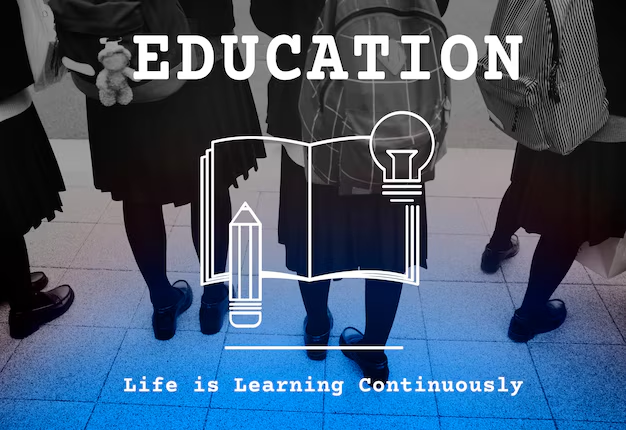Higher education institutions have long been pillars of knowledge, culture, and society. Beyond their primary role in educating students, universities and colleges offer an expansive range of career opportunities for professionals interested in academia. While many people associate higher education with teaching and research, the reality is that the sector offers an array of diverse roles, each contributing to the functioning of these institutions in unique and important ways.
Whether you are drawn to teaching, academic advising, research, or administrative roles, a career in higher education can be immensely rewarding. However, navigating the vast landscape of higher education jobs requires a clear understanding of the various career paths, the skills and qualifications required for each, and the opportunities for growth and advancement. In this article, we will delve into the various career opportunities in academia, including faculty positions, administrative roles, student services, and more. We will also explore the challenges and trends shaping the higher education job market today and in the future.
Key Takeaways
- Higher education offers diverse career paths, including faculty positions, administrative roles, student services, research positions, and more.
- Faculty positions are competitive, but opportunities in areas like online learning, diversity and inclusion, and lifelong learning are growing.
- Strong communication, leadership, and research skills are essential for success in higher education jobs.
- The growing demand for online education and the use of new technologies will continue to shape the future of higher education careers.
Overview of Higher Education Jobs

Higher education jobs span a broad spectrum, catering to a diverse set of skills, interests, and qualifications. Whether you want to work directly with students, drive institutional development, or engage in groundbreaking research, there is likely a career path that aligns with your goals. Below is an overview of key job categories within higher education:
Faculty and Teaching Positions
Faculty members are at the core of any higher education institution. They are responsible for teaching students, conducting research, and often contributing to the administration and governance of their departments. Faculty positions can vary widely, depending on the institution and the specific department. Here are the primary types of teaching roles:
- Tenure-Track Professors: Tenure-track professors hold permanent, long-term positions, where they are expected to balance teaching, research, and service to the university. Achieving tenure—after a probationary period of several years—is a significant milestone in academia, providing job security and academic freedom.
- Adjunct Faculty: Adjunct professors are part-time, contract-based faculty members who may be hired to teach specific courses. They are often experts in their field but are typically not involved in research, and their positions tend to lack the job security and benefits of tenure-track roles.
- Lecturers and Senior Lecturers: These positions focus primarily on teaching rather than research. Senior lecturers may have more experience and responsibility, but these roles are typically non-tenure-track and do not involve the same level of academic research.
Faculty members are typically required to have advanced degrees, often a Ph.D., in their area of expertise. They also need to demonstrate teaching excellence and a commitment to ongoing research, which is crucial for career advancement.
Research Positions
Research is a critical component of higher education. Research professionals contribute to the academic community by conducting studies, publishing findings, and advancing knowledge within their fields. Higher education institutions often employ a variety of research staff, including:
- Principal Investigators (PIs): Principal investigators are senior researchers who lead research projects, secure funding, and guide teams of researchers. They are often faculty members with a specialized focus and an extensive research portfolio.
- Postdoctoral Researchers: After completing a Ph.D., researchers may pursue postdoctoral fellowships to gain additional expertise and contribute to research projects. These positions are typically temporary but provide important career development opportunities.
- Research Assistants: Research assistants are often graduate students or early-career researchers who assist in data collection, analysis, and report writing. Research assistants are usually employed on a project-by-project basis.
Careers in research can be highly competitive, requiring specialized knowledge and the ability to secure funding through grants and scholarships. Research professionals are typically expected to publish regularly and contribute to the broader academic conversation in their field.
Administrative and Leadership Roles
Beyond the classroom, higher education institutions require a wide range of administrative and leadership positions to ensure smooth operations, strategic growth, and institutional development. These roles are crucial for managing departments, overseeing budgets, and ensuring that the needs of students, faculty, and staff are met. Some key administrative roles include:
- University Executives: The president or chancellor is the highest-ranking official at a university. They are responsible for setting institutional priorities, overseeing operations, managing budgets, and engaging with external stakeholders such as donors and government officials.
- Deans and Provosts: Deans oversee specific colleges or schools within a university, while provosts handle broader academic affairs. These roles require leadership, organizational skills, and the ability to manage a diverse set of academic programs.
- Department Chairs: Department chairs manage specific academic departments, overseeing faculty, scheduling courses, and ensuring departmental goals align with the university’s strategic vision.
Administrative roles often require a combination of leadership experience, advanced degrees (such as a master’s or Ph.D.), and the ability to work effectively with diverse stakeholders.
Student Support and Services
In addition to academic roles, student support services play a vital role in higher education institutions. These professionals work directly with students to provide guidance, mentorship, and resources that foster academic success and personal development. Some common student support positions include:
- Academic Advisors: Academic advisors help students plan their academic path, select courses, and navigate graduation requirements. They also offer advice on internships, careers, and additional academic support.
- Career Counselors: Career counselors help students explore potential career paths, assist with job placements, and provide resume writing, interview preparation, and career development resources.
- Mental Health and Counseling Services: Many universities employ mental health counselors to provide support for students dealing with stress, anxiety, depression, or other psychological challenges. These professionals are crucial in ensuring students’ well-being.
- Student Affairs Coordinators: These professionals oversee student organizations, extracurricular activities, and services such as housing, dining, and health services. Their focus is on enhancing student engagement and ensuring a positive campus environment.
Working in student services often requires a background in education, counseling, psychology, or social work. Strong interpersonal and communication skills are essential in these roles, as they involve direct interaction with students on a daily basis.
Library and Information Services
Librarians and information professionals manage the university’s academic resources and assist faculty, staff, and students in accessing vital information. The role of library and information services has expanded significantly with the rise of digital technologies. Positions in this area include:
- Academic Librarians: Academic librarians manage physical and digital library collections, support research, and provide training to students and faculty on how to access and use academic resources.
- Digital Archivists: Digital archivists focus on managing and preserving digital records, such as research data, historical documents, and multimedia files.
- Library Technicians: Library technicians assist with the organization and cataloging of library materials, providing user support, and managing circulation services.
Librarians and archivists typically need a master’s degree in library science (MLS or MLIS) or a related field. As academic libraries increasingly move toward digital platforms, a background in information technology and data management is becoming more important.
Challenges in Higher Education Jobs

While higher education offers a variety of career paths, there are challenges that professionals in academia may face. These include:
Job Competition
Many higher education jobs, particularly faculty positions, are highly competitive. Universities receive numerous applications for a limited number of openings, making it difficult for candidates to stand out. Earning advanced degrees and gaining relevant experience can increase the chances of landing a coveted position, but the process can still be challenging.
Job Insecurity
For some positions, particularly adjunct or contract-based roles, job insecurity can be a significant concern. These positions often lack the job security and benefits of full-time, tenure-track roles. This can create uncertainty for professionals who may be seeking stable employment in academia.
Workload and Burnout
Academic and administrative professionals often face demanding workloads. Faculty members are expected to balance teaching, research, and administrative duties, while administrators may juggle multiple responsibilities. The high expectations and workload can lead to burnout and stress if not managed effectively.
Financial Pressures
Higher education institutions are facing increasing financial pressures due to shrinking budgets, rising tuition costs, and decreased public funding. This can lead to budget cuts, reduced resources, and fewer career opportunities, particularly in public universities.
Future Trends in Higher Education Jobs
As the landscape of higher education continues to evolve, several trends are shaping the future of academia. Some of these trends include:
Increasing Demand for Online Education
With the rise of online learning, especially in the wake of the COVID-19 pandemic, universities are expanding their online and hybrid programs. This shift has created new opportunities for faculty and administrative staff to work in digital education, instructional design, and e-learning development.
Growing Emphasis on Diversity and Inclusion
There is an increasing focus on diversity, equity, and inclusion (DEI) within higher education. Many institutions are hiring professionals to lead DEI initiatives, develop inclusive curricula, and support underrepresented groups within the academic community.
Expansion of Lifelong Learning Programs
As the job market evolves, there is growing demand for lifelong learning programs and adult education. Universities are responding by offering certificates, micro-credentials, and non-degree programs that allow individuals to acquire new skills throughout their careers.
Technological Advancements in Research and Administration
Higher education institutions are embracing new technologies to enhance teaching, learning, and research. The integration of artificial intelligence, data analytics, and virtual learning environments is creating new career opportunities in tech-driven roles within academia.
Teaching roles

- Elementary school teachers: They are like young plants in a garden, educating children in science, social studies, literacy, and numeracy, laying the foundation for future learning.
- A high school teacher: They plan and conduct lessons for students in grades 9-10, focusing on providing lifetime learning skills and subject knowledge for future success.
- School counselors: They are responsible for creating and implementing support programs, career development, higher education, technology career path, and promoting healthy habits and emotional wellness.
- Special education teachers: They are in charge of instructing and training pupils who have mental, physical, or learning challenges. A special education teacher assists children with impairments in overcoming challenges related to their social behavior.
Non-teaching roles
- Curriculum writer: Curriculum writing involves researching, creating teachings, resources, exercises, and evaluations, and includes positions like instructional coordinators, curriculum experts, curriculum writers, and curriculum designers.
- Educational consultants: They work with parents, teachers, and students to improve learning environments, resources, and outcomes, including developing guidelines, expediting financial assistance, and providing career guidance.
- Office administrators: Their responsibilities include managing all assigned work, comprehending the policies of the school, coordinating all administrative procedures, overseeing budgets, policies, and events, and promptly resolving disagreements or other concerns.
Paths to Pursue Education Careers:
Required Education and Certifications
To be appointed as a pre-primary or primary school teacher in any government or private school, one must possess a bachelor’s degree in education. Acquiring a degree in education, teaching career, educational leadership, or administration can equip you with the abilities needed to succeed in this position.
Professional associations occasionally provide certification possibilities for educators. These groups can also assist teachers in locating materials for ongoing education.
Paths to Pursue Education Careers
To begin their professions, individuals who want to become educators need to obtain a postsecondary certificate or a degree in higher education or a related discipline. It will also be beneficial if they possess the necessary abilities to become successful educators.
The field of education is broad and diverse, offering a multitude of alternate avenues that present distinctive and significant approaches to molding minds and effecting change.There are several ways to pursue a career in education, such as certification programs, website learning, online learning, part-time courses, distance education, and more.
Educational requirements
Finishing your upper secondary education is the first step toward a career in teaching. Using the courses you choose in higher secondary, finish your bachelor’s degree at one of the best bba colleges in India. Following the completion of your undergraduate studies, you may enroll in a recognized board to pursue a Bachelor of Education (B.Ed).
Benefits of Education Careers:
Impact on Future Generations: Education careers offer a chance to positively impact future generations, contribute to society, and experience professional and personal fulfillment as teachers educate adults who will lead their communities and workplaces.
- Job satisfaction: You’ll be happier at your job if you are employed in a discipline you’re enthusiastic about. Every teacher has the capacity and the intention to carry out their responsibilities with the highest fervor to feel fulfilled by their work.
- Opportunities for Growth and Development: Careers in education might also aid in your personal development. There may be obstacles on your education path that will test your resolve, self-awareness, and ability to inspire yourself to succeed. Your level of education and self-awareness determines your capacity for reasoned and informed decision-making, and jobs in education can help you get there.
What is higher education?
Higher education, also known as post-secondary education, is any tertiary education program that results in a degree, such as an associate degree, bachelor’s degree, master’s degree or doctorate degree, or an advanced certificate or diploma. Colleges, universities and vocational schools are all part of the higher education system. Higher education programs often take several years to complete, depending on the type of degree and area of study. To operate successfully, higher education institutions rely on their faculty and staff. Universities contain a number of colleges and academic departments, in addition to administrative departments such as:
Taking Care of Yourself While Exploring a Career Transition

The process of exploring a major career transition can be by turns exhilarating, isolating, anxiety-inducing, frustrating, disheartening, exciting, confusing and overwhelming. Spending time developing a clear plan for how you will navigate your career exploration and potential transition will help sustain you through the process—what I often explain to career coaching clients as making the intellectual and emotional time, space and energy to do the work of leaving.
Worry and anxiety about a variety of issues related to potentially moving into a new career path are common: Will I be starting over? Does this make my Ph.D. a waste? Is leaving failing? Will I be employable in a career outside higher ed? Will I be able to find meaningful, intellectually engaging work outside the academy?
Transitioning to a new career field or path is both possible and not a sign of failure. Reading the narratives of academics who have gone on to careers beyond higher ed provides clear evidence that meaningful, intellectually engaging work does indeed exist outside the academy. While you will certainly not be starting over—you’re bringing a wealth of knowledge, experience and skills with you—you will need to learn how to translate that knowledge, experience and skills for other industries. More on that in the next piece.
Understanding the Education Sector
Before diving into the various career opportunities, it is essential to understand the importance of education in society. Education plays a crucial role in shaping the minds and futures of individuals, contributing to the overall development of a nation. It provides individuals with the knowledge, skills, and values necessary to navigate through life and make informed decisions. Moreover, education promotes social cohesion, fosters critical thinking, and empowers individuals to become active and engaged citizens.
With an emphasis on providing quality education to all, the UK education sector is vast and ever-evolving, offering a wide range of career options. It encompasses a diverse array of institutions, including schools, colleges, universities, and vocational training centers. These institutions cater to learners of all ages, from early childhood to adulthood, and offer a variety of educational programs tailored to meet the needs of different individuals.
Within the education sector, there are different areas that you can explore. These areas include early years education, primary and secondary school teaching, higher education, and specialized roles. Early years education focuses on the crucial developmental stage from birth to five years old, providing a foundation for future learning. It involves working with young children, creating stimulating and nurturing environments, and facilitating their social, emotional, and cognitive development.
Also Read : Exploring Higher Education Positions: Career Paths And Opportunities
Conclusion
A career in higher education offers a diverse range of opportunities, from teaching and research to administration and student services. These positions not only contribute to the intellectual growth of students but also help shape the future of education. While the sector presents challenges, such as job competition and financial pressures, it is also undergoing significant transformation with the integration of new technologies and a growing focus on diversity, equity, and inclusion.
By understanding the various career paths in higher education, developing relevant skills, and staying informed about emerging trends, you can successfully navigate the opportunities and challenges in academia. The future of higher education jobs is bright, and there are ample opportunities for individuals passionate about education to make a lasting impact.
FAQs
What qualifications are necessary for faculty positions in higher education?
Faculty positions typically require advanced degrees, such as a Ph.D. in the relevant field. Experience in teaching and research is also essential.
Are there opportunities for career advancement in higher education administration?
Yes, higher education administration offers ample opportunities for career growth, with positions such as deans, provosts, and presidents providing paths to advancement.
How can I get started in a higher education career?
To get started, gain relevant education and experience in your field, seek internships or entry-level positions, and network with professionals in academia.
What are the typical responsibilities of a career counselor in higher education?
Career counselors help students explore career options, prepare resumes, practice interview skills, and find job opportunities.
How competitive are academic jobs in higher education?
Academic positions, especially tenure-track faculty roles, can be highly competitive. Building a strong academic portfolio and networking can increase your chances.
What is the job outlook for higher education jobs in the future?
The job outlook for higher education positions is mixed. While faculty positions may be competitive, growing fields such as online education, student services, and technology offer new opportunities.
What skills are important for success in higher education jobs?
Strong communication, leadership, research, and organizational skills are crucial for success in higher education. Additionally, an ability to adapt to technological changes and embrace diversity and inclusion initiatives is becoming increasingly important.




